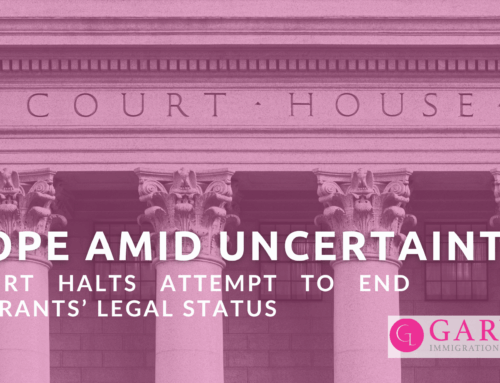On August 15, 2025, U.S. Citizenship and Immigration Services (USCIS) released new guidance on the Good Moral Character (GMC) requirement for naturalization applicants (Form N-400). Under this policy memorandum, officers are instructed to go beyond simply confirming that an applicant has avoided misconduct. Instead, they must take a holistic approach—weighing both positive attributes and negative behaviors—to determine whether an applicant has affirmatively demonstrated they are worthy of the rights and responsibilities of U.S. citizenship.
Quick Highlights from the USCIS Memo
- Holistic assessment: Officers must evaluate applicants’ overall character, not just the absence of wrongdoing.
- Positive contributions count: Community involvement, family caregiving, educational progress, and tax compliance are now explicitly recognized as factors that support a finding of good moral character.
- Scrutiny of misconduct: Disqualifying actions will face closer review, with attention given to whether applicants have genuinely been rehabilitated and reformed.
- Beyond a checklist: USCIS has moved away from a purely “mechanical” evaluation and will instead apply a totality of circumstances model in every GMC determination.
Categories of Conduct Considered
The new guidance groups applicant conduct into three main categories:
- Permanent bars – Serious crimes such as murder, aggravated felonies, or other violent offenses.
- Conditional bars – Misconduct like controlled substance violations or multiple DUI convictions.
- “Technically lawful” but concerning conduct – Behaviors that, while not illegal, may reflect poorly on civic responsibility (for example, repeated reckless driving, harassment, or aggressive solicitation).
In each case, USCIS will review all available documentation and question applicants about the specific circumstances before deciding whether the conduct should prevent naturalization.
Positive Factors in GMC Determinations
Officers are now directed to actively consider an applicant’s:
- Family and caregiving responsibilities
- Community involvement and service
- Educational attainment
- Tax compliance and financial responsibility
Applicants with prior issues are expected to show rehabilitation—for example, paying overdue child support or complying with all court orders.
Key Takeaways
Good Moral Character has always been a central eligibility requirement for naturalization. The 2025 USCIS memorandum makes clear that GMC is no longer about checking boxes, but about the “complete history” of the applicant. This means USCIS will weigh both the positive and negative aspects of an individual’s life to decide whether they meet the ethical standards expected of U.S. citizens.
For applicants, this underscores the importance of presenting a well-rounded picture, providing not only evidence that no serious misconduct has occurred but also proof of contributions and responsibilities that demonstrate integrity, responsibility, and commitment to community values.
About the Author
Elizabeth Garvish
Elizabeth L.A. Garvish founded Garvish Immigration Law Group, LLC in 2011 after practicing immigration law in small boutique firms, big law and nonprofits. Elizabeth is a frequent speaker and presenter on entrepreneurship and U.S. immigration topics around the world. She is an active member of the American Immigration Lawyers Association (AILA) and serves on various national committees and is the Past Chair of the Georgia-Alabama Chapter of AILA. Elizabeth is also a certified member of the EO Global Speakers Academy.





